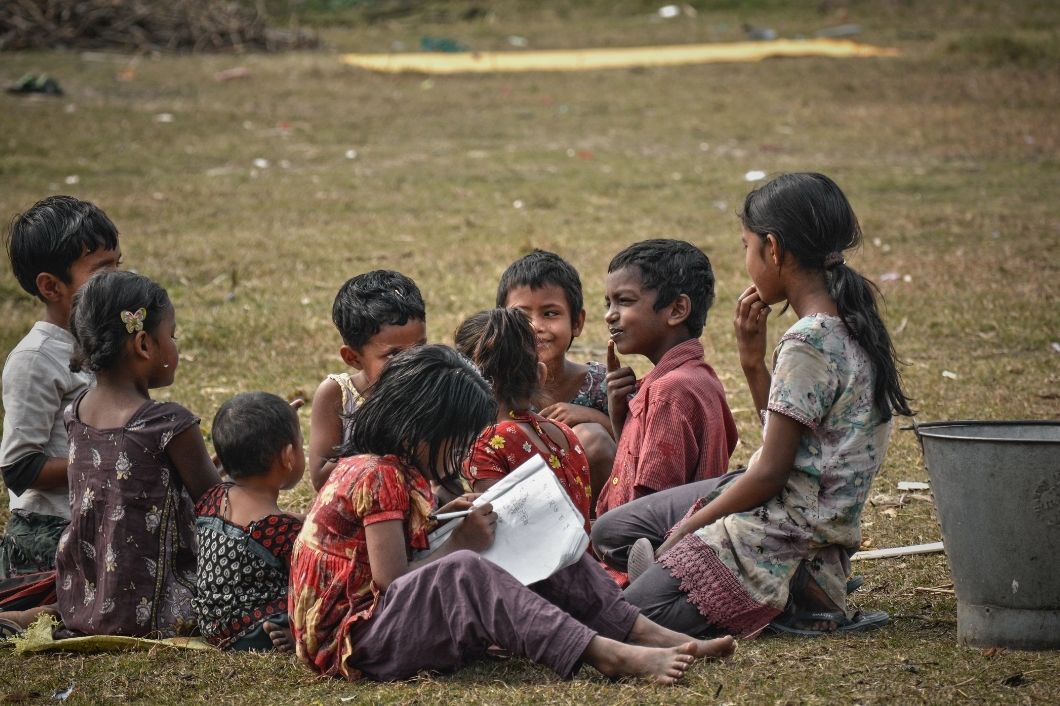NGOs Working for Education

In a nation as diverse and dynamic as India, the pursuit of education for all its children is an unceasing mission. A startling reality looms over the horizon: approximately 35 million children between the ages of 6 and 14 in India remain unenrolled in schools. More distressing still is the fact that a significant 53% of these children are girls, deprived of basic education and left in the shadows of illiteracy. Equally concerning is the fact that only 53% of India’s population has access to primary schools. In this pursuit of bridging the education divide, Child Education NGOs stand at the forefront.
Empowering the Education Rights of Children
The fundamental right to a free and compulsory education for children aged 6 to 14 is enshrined in Article 45 of the Indian Constitution. It’s a mission deeply ingrained in the ethos of the Indian Government. Yet, this mission remains a work in progress.
The government has embarked on numerous initiatives to rectify the gaps within the educational system, striving to fulfill this constitutional mandate.
Harmonious Collaborations: NGOs and the Indian Government
Recognizing the need for a skilled workforce to navigate the path of economic progress, the government has sought alliances with NGOs. This synergy ensures that the roots of child education in India are firmly established, aiming to fortify the entire educational ecosystem.
NGOs take on the role of education ambassadors, diligently spreading awareness about the paramount importance of education. Their tireless efforts aim to bring as many children as possible into the fold of basic and primary education, providing them with a foundation for a brighter future.
Guiding Lights in the Pursuit of Education
India boasts numerous luminaries who have dedicated their lives to the cause of education. They contribute to child education through various means, promoting literacy and higher learning, particularly for girl children. These dedicated NGOs launch schemes and initiatives, ensuring that socially and economically marginalized families have unhindered access to quality education, effectively reducing dropout rates.
These organizations also run parallel programs, preparing children aged 4 to 6 from low-income communities for their school journey. The goal is to lay a strong foundation in language and social skills within a secure and nurturing environment. Even after students begin school, the support continues, accompanying them on their educational journey until they are job-ready.
Education and Technology: Bridging Gaps
In rural India, where government schools often face a shortage of qualified teachers, some NGOs employ technology to provide underprivileged children with quality education. Through remote learning, children connect with volunteer teachers worldwide in live, interactive classes. This approach equips students from under-resourced schools with essential computing and problem-solving skills.
Given that many students in marginalized communities reside in remote areas without access to resources and skills that are vital for the future workforce, these initiatives play a pivotal role in realizing the aspirations of these young minds.
Building the Foundation: NGOs and School Infrastructure
Many NGOs actively engage in bolstering government school infrastructure, while others undertake the construction of schools for the underprivileged. This ensures that destitute children from marginalized backgrounds receive free primary education, along with the promise of shelter and opportunities for a brighter future.
These NGOs also advocate for the establishment of libraries in schools, fostering a love for reading and enhancing comprehension. They extend financial support to improve government school infrastructure, with the overarching goal of making a substantial difference in the lives of underprivileged children from socio-economically marginalized backgrounds.
Nurturing Bright Minds
Some NGOs specialize in identifying and nurturing bright students from economically disadvantaged families. Their mission extends beyond primary education, as they support these high-achieving children through their journey to higher education and employment.
These organizations firmly believe that intelligence knows no social boundaries. Yet, students from low-income families often face limited access to resources and opportunities due to subpar education and financial constraints. As a result, these NGOs offer comprehensive financial support to deserving children from economically challenged backgrounds, ensuring their access to higher education and a path to employment.
In Conclusion
India’s vision of achieving 100% literacy among its children and youth hinges on the collaborative efforts of NGOs and the government. The next 25 years hold the key to measuring the progress made in the realms of education and literacy. As India approaches its centenary, a strong educational foundation is imperative, shaping a brighter future for the nation and its children.


